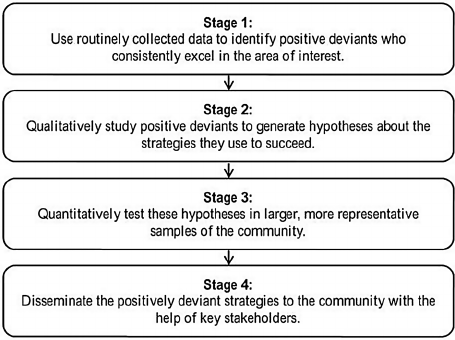What is the Positive Deviance Model?
The Positive Deviance method, described by Pascale and Jerry Sternin (2005), is a change methodology that holds that managers must actively look for those extraordinarily successful groups and individuals, and bring the isolated success strategies of these “positive deviants” into the mainstream.
Best practice Change Management methods are not good at realizing this. That’s why Pascale and Sternin suggest to ensure the participation of the members of the community which you want to change in the process of discovery. In this way you can make them the evangelists of their own conversion experience.
What are the Steps of the Positive Deviance Model?

What are the Assumptions of the Positive Deviance method?
- There are always positive exceptions to rules concerning business problems. Somehow, a few isolated groups or individuals, operating with the same constraints and resources as everyone else, function better.
- Best practice Change Management methods are not good at bringing successes to the mainstream.
- If you ensure the participation of people, their avoidance, resistance and exceptionalism will decrease.
- Time is not the issue.
- Leaders want to step back and facilitate the process.
- Positive deviants are willing to share.
